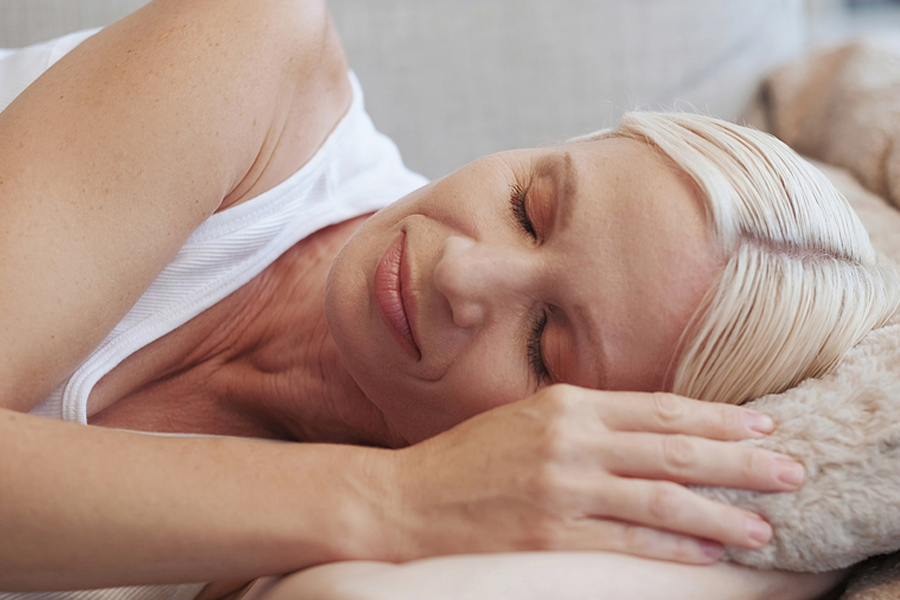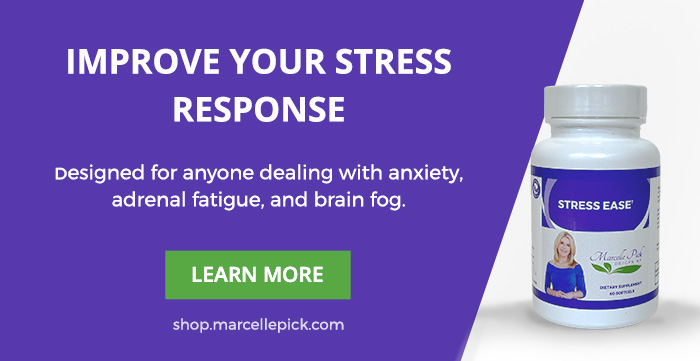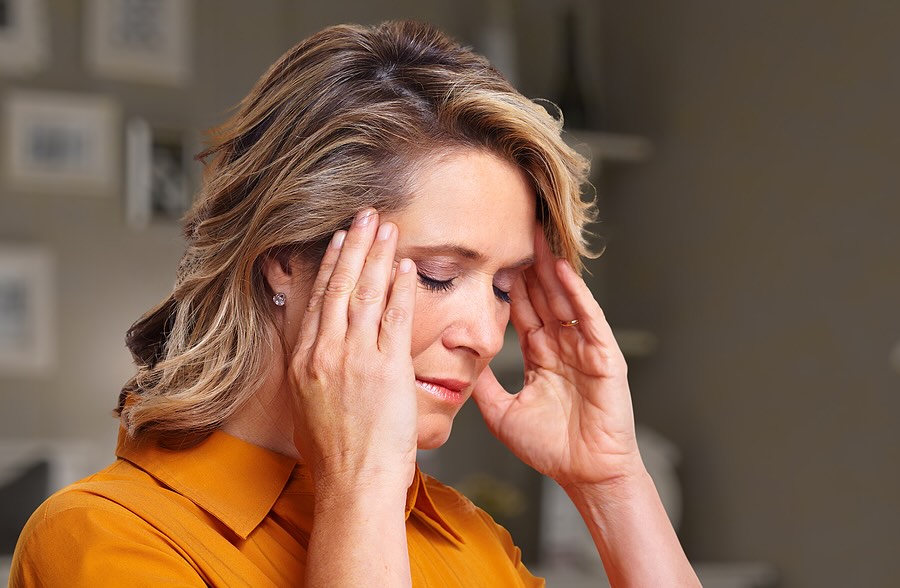Updated 08/13/2023
Jessica’s sleep deprivation was apparent the moment we met. The deep dark circles under her eyes and sallow skin were my first clue, but even more telling was the way she kept losing her train of thought as she tried to tell me why she’d come to see me. I’d ask a question and she’d drift off mid-sentence, unable to elaborate on her concerning symptoms.
I asked her about her sleep patterns, and she sighed deeply. “I wake up so often in the night – if I can even fall asleep at all. I’ve basically given up on being well rested,” she said.
Jessica’s tale was familiar. So many women come to me feeling this way. Despite trying all the sleep strategies they can find, they still spend hours lying awake before sleep comes, or toss and turn all night, waking frequently. Sleep medications are no help. In fact, they make things worse. After taking them, these women say, they feel groggy and unfocused, but are still unable to sleep.
During the pandemic, the number of women with sleep issues skyrocketed. Clients who had never had trouble sleeping in the past said that after the pandemic hit, their sleep varied widely. It made sense to me that sleep issues were more common during the pandemic; it was an amazingly stressful time, and stress and sleep issues go hand in hand.
Not only did women who hadn’t had trouble previously find themselves facing sleep disturbances, but those who had already been struggling found sleep nearly impossible. Take my friend Betty, who told me that during the pandemic, the moment she turned off her light and laid her head on the pillow, anxious thoughts bombarded her. She managed her life just fine during the day, mainly by keeping her focus on what needed to get done. But at night, the questions came.
And now, three years after the pandemic hit, her sleep isn’t much better. She lies awake with new questions: Will her children ever get over the trauma of the past few years? Will her elderly mother? How will she manage rising costs? Will the political divide reach a crisis point? With all that noise, it’s no wonder she can’t sleep!
Not only are these anxious thoughts disrupting her sleep patterns, but they’re certainly increasing her stress level, which raises cortisol levels, making sleep difficult. It’s a crazy cycle that MUST be broken.
Why sleep matters
Lack of quality sleep is certainly frustrating, as Jessica’s lamenting demonstrates, but it also brings serious physical and psychological consequences.
Chronic sleep deprivation can impact conditions like heart disease, diabetes and stroke. It can cause memory loss, fuzzy thinking, and slower cognitive processing.
Mood is likely to suffer when sleep deficit is constant, prompting irritability, anxiety and depression. And, of course, there’s the inevitable sleepiness and fatigue that come from lack of sleep.
All of these mental and physical impacts are bad enough, but sleep deprivation can impact productivity in the workplace as well. And with the ever changing world, it’s more important than ever to be focused and perform well at work.
On top of all that, there’s evidence that chronic lack of sleep can actually be dangerous. Reaction times are slower, and decision making becomes more difficult, both of which can contribute to an increase in accidents. In fact, data from the National Sleep Foundation shows that lack of sleep leads to tens of thousands of traffic accidents and other injuries every year! An expert panel in 2016 determined that sleeping less than 2 hours a night makes driving a car extremely dangerous. Research has long demonstrated a connection between sleepiness and work-related injuries. In fact, workers who are overtired are 70% more likely to be involved in an accident at work.
And, like I said before, lack of sleep can cause major imbalances in hormones, especially cortisol, which is produced by the adrenal glands when your body is under stress. Not sleeping is a huge stressor for your body.
Physiology of sleep
Sleep is regulated, in large part, by the HPA axis. A growing body of research suggests that there is a reciprocal relationship between sleep and HPA activity. Let’s take a look at regular sleep patterns, and the impact that cortisol can have on these.
Normal sleep patterns include cycles of light sleep, deeper slow-wave sleep, and REM sleep. Slow wave sleep, which is where muscle recovery and restoration of the body occurs, often accounts for much of the first half of the night, while REM sleep, which allows for restoration of the mind, is more prevalent in the second half of the night. With each cycle of sleep, the period of REM sleep lengthens.
Cortisol is secreted during sleep. Levels begin to increase 2-3 hours after sleep onset and rise into the early morning and early waking hours. Cortisol peaks around 9 am, and levels slowly decline throughout the day. But when the body is under stress, cortisol levels remain high, which can lead to a decrease in short-wave sleep and prompt frequent waking.
Sleep deprivation and/or reduced quality of sleep result in functionally significant activation of the HPA axis. Hyperactivity of the HPA axis can lead to disturbed sleep. Again, it’s a vicious cycle.
Stress, adrenals and sleep
What does all of this have to do with the adrenal glands and adrenal dysfunction? These tiny glands that sit on top of your kidneys have big responsibilities. And when they are working overtime all kinds of problems can result.
Stress of any kind – good, bad or neutral – kicks your body into action, activating a physiological response to perceived danger. Your sympathetic nervous system prepares your body by sending messages to several glands and organs, including your adrenals. Because these adrenal glands manage the stress response, stressors prompt the release of hormones like adrenaline and cortisol.
When this stress response is constantly engaged, normal cortisol patterns are disrupted. And that may send your body the wrong message, telling it “be alert and awake” when you should be sleeping.
Both high and low levels of cortisol can impede natural sleep patterns. Low levels can lead to a dip in glucose, which can send up an alarm telling your body it needs to refuel. This can lead to waking in the early morning hours, between 1 AM and 4 AM.
If adrenal dysfunction is preventing quality sleep, there are many natural ways to reduce stress and promote health balance. Read on for my top recommendations for healing the adrenals and improving sleep.
Tips to Balance Adrenals and Get Some Sleep
It takes quite a bit of time for your adrenals to get to the point where the balance is so skewed that sleep patterns are also disrupted. It will also take time to break the cycle, particularly because lack of sleep contributes to the imbalance. But with lifestyle changes, stress relief strategies, mineral and herbal support, and other natural solutions it IS possible. You’ll need to be gentle with your body (and yourself) as you work to reclaim balance. Here’s some tips on how to relax, restore balance, and finally get some sleep!
Pay close attention to your sleep environment
Your bedroom should be used for two things only: sleep and sex. Set this room up as a sanctuary and fiercely protect the peace it can offer. That means leaving electronics of any kind out of the room; setting a comfortable temperature that’s not too warm or too cool (60-68 degrees is recommended); and keeping lighting soft.
Set a relaxing, consistent bedtime routine
Environment is important, and so are the activities you choose right before bed. If you’re watching a movie with high intrigue and tension, it’s unlikely you’ll be able to switch off the light and get right to sleep afterwards. Turn off electronics an hour before bed and choose a book instead. Set up a meditation practice or try some deep breathing techniques as you wind down. Don’t try to work until it’s time for sleep – give yourself the transition time you need to make that shift. Try not to engage in anything too stimulating that might result in a “second wind.”
Establishing consistent bedtimes (ideally before 11 pm) and wake times, even on weekends, can also keep your circadian rhythms on the right track.
Have established stress relief strategies throughout the day
As valuable as meditation and mindfulness are, if you’re on full throttle all day long and only give yourself a short period of time to relax in the evening, your body won’t be able to keep up. Stress relief needs to happen on a regular basis, and will probably take a conscious effort at first.
One of the best ways to relieve stress is to find an activity that brings you joy. The particulars don’t matter; maybe you love reading, writing, dancing, gardening, or sitting on a beach watching the waves. Or connecting with loved ones is what feeds your soul. The most important thing is that you can get so engaged in the activity you don’t think about anything else. This allows your mind time to truly relax.
Exercise – but gently
Exercise can be great stress relief and can also help use excess energy so your body will be ready for sleep. But you have to be careful if your adrenals are already overworked; vigorous exercise can make the problem even worse. If you’re struggling with adrenal issues, now is not the time to take up marathon running or 50-mile bike rides. Start with a walk, yoga, or a gentle spin around town on a bike.
Strive for optimal nutrition
Your adrenals, like the rest of your body, rely upon you having the essential minerals and nutrients you need. If you aren’t eating well, you’re depriving your body of the fuel it requires. Fresh, whole fruits and vegetables, lean meats, and healthy fats are all essential to help your body heal – and stay healthy. Since it’s difficult to get everything you need from diet these days, I always recommend a high-quality multivitamin complex, and targeted supplementation as needed.
Working with a healthcare professional can identify deficiencies and help you know exactly what your body needs. Vitamin B6, pantothenic acid, and vitamin C are often depleted with adrenal dysfunction. Calcium, magnesium, potassium, manganese and zinc are all important in supporting proper adrenal function.
When you eat also matters when it comes to your sleep patterns. Try to stop eating at least three hours before bedtime; if you do need a light snack, make sure it contains protein and healthy fat. Avoid a big meal too late in the evening. I recommend making your mid-day meal the heartiest.
Alcohol and caffeine are best avoided, especially late in the day. I suggest keeping caffeine intake to before noon and reducing alcohol consumption (especially near bedtime) as much as possible.
Try some herbal support
Instead of turning to prescription sleep aids, consider supporting your body with herbs. A wide range of botanicals, including American ginseng, Asian ginseng, astragalus, eleutherococcus, Holy basil, rhodiola, and licorice can support the HPA axis, helping to balance cortisol levels.
Ashwagandha and Magnolia have also shown promise in regulating stress and promoting healthy sleep.
Small changes, big relief
Jessica was willing to do anything to try and fix her sleep issues. She tried the suggestions I gave, and when she returned a few weeks later I could immediately see the difference; her eyes were brighter, her color was better, and most of all she could focus on what she was saying. She told me she’d noticed a huge difference – and while her adrenals weren’t entirely healed yet, she knew she was on the right track. Best of all, she said, she’d slept through the night for an entire week!
Understanding the connections between adrenal dysfunction and sleep disruption allows you to make the best choices for your personal situation. And remember, you don’t have to do it alone. I have a wealth of articles on stress, adrenals, hormones, sleep and much more in my health library.
Resources:
https://www.ncbi.nlm.nih.gov/pmc/articles/PMC2902103/
https://adrenalfatigue.org/sleep-disruptions/
https://thewomensalzheimersmovement.org/how-to-stay-asleep-mark-hyman/








